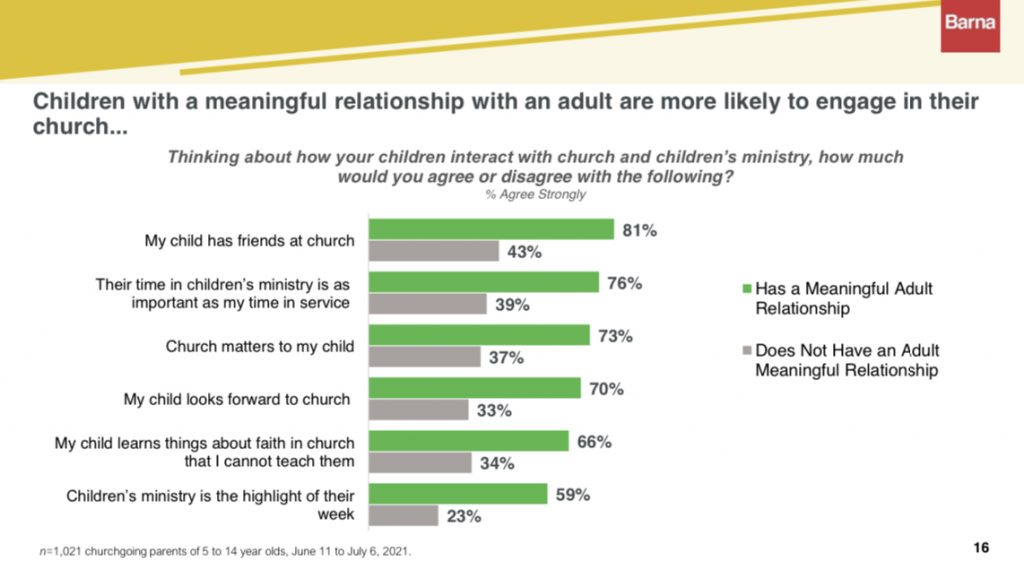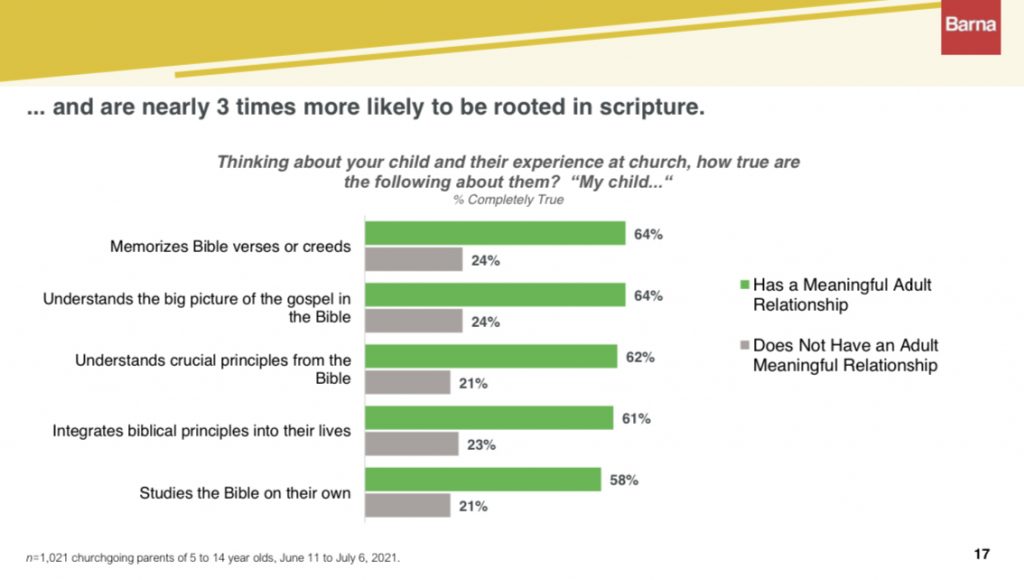What kids need most is joy. We must give them joy that only comes from treasuring Christ. We must give not give them the empty happiness of distracting entertainment but joy that is engaging joy that is substantive and joy that is gospel-saturated.
Galatians 4:19
My little children, for whom I am again in the anguish of childbirth until Christ is formed in you!
Our kids are being formed the only question is by whom and into what?
All men seek happiness. This is without exception. Whatever different means they employ, they all tend to this end. The cause of some going to war, and of others avoiding it, is the same desire in both, attended with different views. This is the motive of every action of every man, even of those who hang themselves.– Blase Pascal
1. Kids Leaders who lead with the gospel as central, not gospel as peripheral.
The gospel as peripheral is when we limit the message of Christ crucified to gospel Sundays and Easter Sunday rather than the lens by which we teach each lesson. To see Christ in all of scripture is God-given. His Spirit opens our eyes to see Christ. If you do not treasure Christ above all else, you will be tempted to opt for lessons that teach morality minus Christ’s transforming power. You will be tempted to lead pragmatically, doing what works and draws kids even if it is devoid of your reliance on God’s spirit. You will settle for happiness when your kids need joy.
When we are committed to their long-term joy we will communicate God’s plan and purpose for the world and them in a way that is exciting and fun. We will stop asking “Did you have fun?” and start asking “What did you learn about God today?” As leaders who are committed to our children’s joy, we must be committed to their long-term joy which is at times in opposition to short-term happiness. We settle for fun saturated entertainment with a little Jesus thrown in at the expense of the joy that Jesus as central, Jesus as precious, and Jesus as Beautiful can only bring. Kids are adrift in a virtual world being literally entertained to death. What kids need is a rutter that only the joy of belonging to God submitting to his word and living within the hope the Gospel provides.
2. Kids leaders who provide environments where can connect kids to a loving, caring adult.
The advantage of your kids having a loving caring adult in their lives is not even close.
3. Kids leaders who connect kids to a multigenerational community of faith that lives by faith.
1. Find sweet old saints and have them come to tell the Bible story.
3. Create opportunities in your services, camps, and events where you allow kids to connect with God in a meaningful way.
4. Kids leaders who obsess over their Christlikeness
Galatians 4:19
My little children, for whom I am again in the anguish of childbirth until Christ is formed in you!
Why isn’t this the normative task of Christian leaders and godly parents? Why are we not in anguish over the Christlikeness of our kids? I think it is because we have idolized success and trivialized holiness.
Eugene Peterson’s riveting opening salvo in his pastoral classic Under the Unpredictable Plant discusses this very issue, and it’s worth quoting him at length.
Vocational Holiness
“The idolatry to which pastors are conspicuously liable is not personal but vocational, the idolatry of a religious career that we can take charge of and manage.Vocational holiness, in deliberate opposition to career idolatry, is my subject. Personal holiness, which is the lifelong process by which our hearts and minds and bodies are conformed to Christ, is more often addressed. But it is both possible and common to develop deep personal pieties that coexist alongside vocational idolatries without anyone noticing anything amiss. If the pastor is devout, it is assumed that the work is also devout. The assumption is unwarranted. Sincerity in a carpenter does not ensure an even saw cut. Neither does piety in a pastor guarantee true pastoral work.My impression is that the majority of pastors are truly good, well-intentioned, even godly. But their goodness does not inevitably penetrate their vocations. The pastoral vocation in America is embarrassingly banal. It is banal because it is pursued under the canons of job
efficiency and career management. It is banal because it is reduced to the dimensions of a job description. It is banal because it is an idol – a call from God exchanged for an offer
by the devil for work that can be measured and manipulated at the convenience of the worker. Holiness is not banal. Holiness is blazing.Pastors commonly give lip service to the vocabulary of a holy vocation, but in our working lives, we more commonly pursue careers. Our actual work takes shape under the pressure
of the marketplace, not the truth of theology or the wisdom of spirituality. I would like to see as much attention given to the holiness of our vocations as to the piety of our lives.”Eugene Peterson



